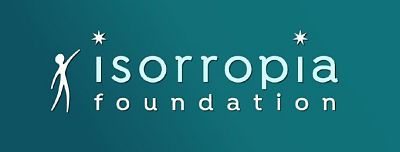19 August 2020
Isorropia means balance in Greek, and that’s exactly what the Isorropia Foundation - a mental health wellbeing service on the Isle of Wight – is supporting people to achieve.
Working in close partnership with the Isle of Wight NHS Trust, the service was founded by Vicki Haworth and Charlie Bell who both have extensive backgrounds working in mental health. They’ve found that the real breakthroughs in mental health come when people find their meaning and purpose in life, and designed the service around this philosophy, describing it as a ‘gym for the mind’.

During Covid-19, the service has had to adapt quickly to continue to support its members. After taking many of its services online, Wessex AHSN are now supporting the Isorropia Foundation to evaluate them so they can continue to develop. In the first of our ‘In Your own Words: Reset series’, Vicki and Charlie describe the challenges they faced and the lessons learned during the pandemic.
Taking services online
Our immediate priority was to continue to provide a service to our vulnerable members, and to make the decision to move services online. We felt a huge amount of anxiety as we went into lockdown around whether it could work and if it was safe. We had to move fast and make quick decisions. We usually take the time to involve all the team and our members in big decisions about service delivery, but on this occasion, we couldn’t.
The core element of our work is face-to-face workshops, so the lockdown situation presented a massive challenge for us. We quickly made the decision to set up a private members’ Facebook page and looked at what we could deliver on our website and our public facing Facebook page.
We developed a daily schedule for our members’ Facebook page, which involved live interactive broadcasts, meditation, relaxation, and mindfulness sessions.
Local broadband provider WightFibre kindly offered six months’ free internet access for members, and for those unable to take advantage of this offer, we arranged postal packs and more regular coaching calls.
Building trust
We thought it would be difficult to build therapeutic alliances with people using an online platform, but instead we’ve found this surprisingly easy. In fact, in some cases, we’ve been able to reach people who would’ve normally been too anxious to come into the wellbeing centre. We’ve been able to build trusting relationships with our new members who now say they can’t wait for our doors to open again to meet us face-to-face. We’ve also been able to connect with people who find it difficult to leave their homes to engage with us due to young children, caring responsibilities, work patterns or phobias.
The Facebook page has also encouraged a real sense of community with our members; they’ve used this forum to develop connections and build supportive new relationships with each other. It’s provided a platform for older members to welcome in new ones and, alongside the Isorropia Foundation wellbeing coaches, to give advice, support, and inspiration to one another.
Lessons learned
We’ve made the decision to continue the online service, and have been awarded a £10,000 grant from the WightAID Foundation to set up a recording studio to enhance and advance the online content we’re producing.
Wessex AHSN are evaluating our services and we’re excited to receive the outcomes from this, which will allow us to evolve and develop our delivery.
Initially online working felt unsafe. The technology was new to us all, so we had to quickly learn this new way of delivering our service. The team have adapted amazingly well and have upskilled themselves in many new areas.
Staff now have the freedom to be able to work from home and conduct meetings online. Colleagues tell us that they’ve felt a greater sense of work life balance. As a result, we’ve committed to trying to support and encourage this flexibility in the future.
Reset
Coming from NHS backgrounds into running a third sector organisation, we’ve really felt the benefits of having the freedom to run a service with far less bureaucracy and red tape than we were ever able to do. Talking with our partners and colleagues from the NHS, they say that during the crisis they’ve felt empowered to just ‘get on with things’ to support patients and service users.
Our plea to the system as we ‘reset’, is to trust in your staff, empower them to get on with their jobs and allow them to make decisions themselves. Replacing bureaucracy with autonomy makes it easier for your team to develop resources and deliver the services needed by an innovative, agile NHS.


News archive
For more info, contact the communications team:
(023) 8202 0858